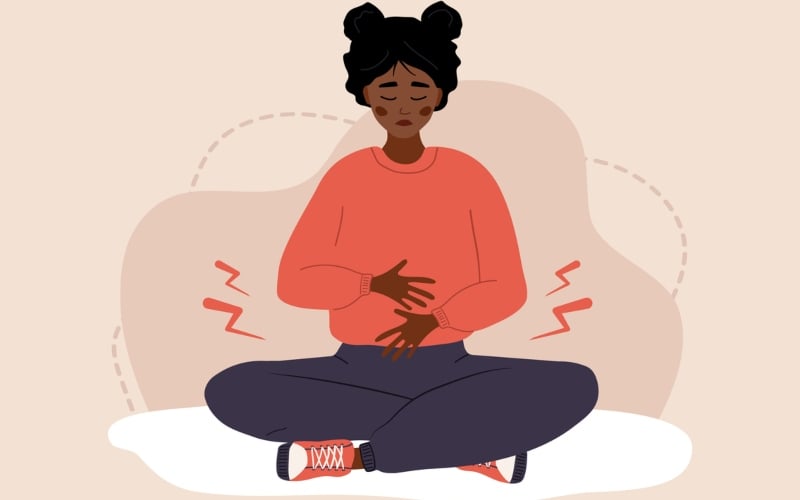Two years into the pandemic sees the world groaning under its weight.
Millions and millions are experiencing further grief as war broke out in Ukraine and with them seeing more innocent people getting hurt.
Photo: PiqselsAs a consequence of the Russian invasion of Ukraine, prices of petroleum products and other consumer goods have skyrocketed in many countries. The unemployment rate rose further along with the inflation rate.
Then, there are the imminent threats to the planet and all of its inhabitants due to the climate crisis, environmental cataclysm, and the possibility of a nuclear war.
It is understandable that many are screaming, “Enough!”
What is Emotional Numbing, and Is It Good or Bad for You?
How do people feel nowadays?
Some are sad and depressed, others furious. Some try to remain optimistic, others are doing their best to help.
And still, there are many who no longer feel anything. Even if the coronavirus pandemic is not yet over, many people have chosen to drop down their guard and continue with life as if there is no longer any danger.
 Photo: PxHere
Photo: PxHere When asked about their opinion on the Russian-Ukrainian war or the recent devastating floods in the Pacific or the rapidly melting ice sheet of Greenland, they hardly care to respond. They would rather talk about what is happening at the workplace now that most employees are back, what is new with their favorite shows, or where they plan to go next weekend.
“When there is lots and lots of stress, it is sort of self-protective to try to not emotionally feel a response to everything,” said Lynn Bufka, PhD, a psychologist and spokesperson for the American Psychological Association.
Bufka explained that distancing one’s self emotionally from stressful things is self-protection. But, a person must understand the reason for doing it so because it can become a problem when the attitude becomes pervasive. That person may stop communicating with loved ones and from getting involved in life.
 Photo: Piqsels
Photo: Piqsels Robert Jay Lifton, MD, author and professor emeritus of psychiatry and psychology at the City University of New York, also cautions about this condition induced by crisis fatigue.
He calls it “psychic numbing,” the same lack of feeling that was experienced by the Hiroshima survivors shortly after the atomic bomb explosion. They acted and helped to carry dead people, but without feeling anything. This kind of disaster, including the COVID 19 pandemic, arouses death anxiety in everyone. Numbing helps to shut off the fear.
“In some ways, psychic numbing overlaps with other defense mechanisms such as denial,” said Lifton. And it affects people in different ways.
 Photo: PxHere
Photo: PxHere “You and I may undergo a significant amount of numbing by something we feel threatened by, but go about our everyday life,” Lifton explained. “Others reject the full impact of the pandemic, really sometimes reject at times its existence, and their numbing is more demanding and more extreme.”
Knowledge about why people switch off their emotions helps us to understand them better, and even ourselves better when we experience psychic numbing due to crisis fatigue.
Numbing May be the Brain’s Reaction to Give Time for Emotional Healing
Emma Kavanagh, PhD, a psychologist and author in Wales, views emotional numbing from a different perspective.
“Emotional numbing has a negative connotation, like we have failed. I think the brain is adapting,” said Kavanagh. “I think we need to focus on the possibility that it is healing. It allows us to take care of survival mechanisms.”
 Photo: PxHere
Photo: PxHere Kavanagh compared it to the world’s initial reaction to the pandemic. Fear gripped us all. We became poor decision-makers because of our lack of knowledge about the new and deadly coronavirus.
“There is a reduction of circulation in the prefrontal cortex [of the brain], so the decision-making was affected,” explained Kavanagh.
During that early period, emotional numbing helped many people to cope with all anguish and havoc that the coronavirus pandemic wrought.
Now, two years after, with COVID 19 still hot on our trail, people are experiencing crisis fatigue and are now reacting with boldness. They are reacting as if the pandemic is not happening, they withdraw from the reality of the global health crisis.
 Photo: PxHere
Photo: PxHere But, according to Kavanagh, “A period of internal focus or withdrawal can allow time to heal.” She believes that people would most probably experience posttraumatic growth rather than posttraumatic stress when the pandemic and other stressful events are over.
Ways to Help You Overcome Crisis Fatigue and Emotional Numbing
Bufka has her own recommendations to help overcome emotional numbing and crisis fatigue.
One of them is to stop focusing on the topics that stress us. Instead, we should teach ourselves to relax and relish those small experiences we are fond of, like playing with our dogs.
 Photo: PxHere
Photo: PxHere Also, look for a support system to help boost our morale and strengthen our spirit.
Sticking to a regular routine, eating healthy food, spending time outdoors, spending quality time with loved ones, and quality sleep are also beneficial in resetting our mental outlook.
Other people choose to be proactive when they find themselves being carried away by negativity. They join organizations involved in public awareness campaigns, fund-raising programs, or research that will help in putting an end to the problems that plague the world.
No one knows what will happen in the future, but living meaningfully in the moment is the best every one of us can do.
Provide Mammograms
Support those fighting Breast Cancer at The Breast Cancer Site for free! →
WhizzcoOriginal Article










